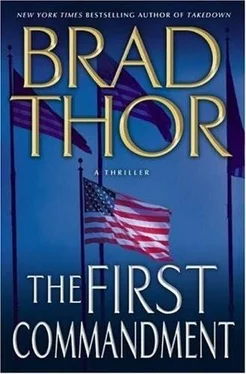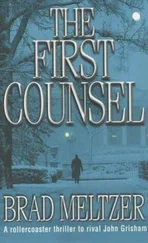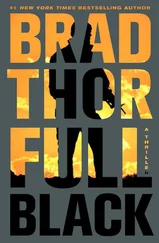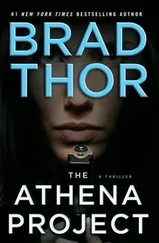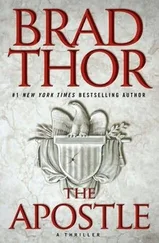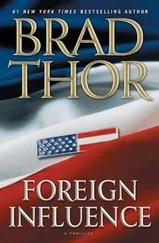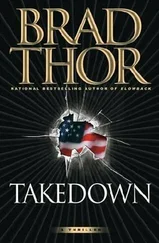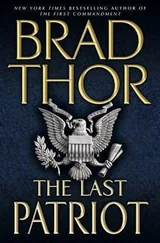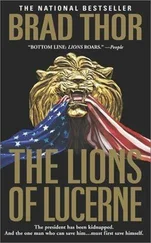The ventilator continued its rhythmic hiss, pop, hiss, pop, and Harvath tried to ignore it. Pulling a chair up alongside the bed, he took Tracy ’s hand and whispered in her ear that he was back.
If only the president could see her like this, he might not be so quick to pull him off the investigation. All the way back to the hospital, Harvath had tried to figure out why Rutledge was doing this. No matter how many angles he came at it from, none of them made any sense.
The president knew better than anyone else what an asset Scot could be in a case like this. For a moment, he thought maybe Rutledge was concerned about the task being too emotional for him, but Harvath had more than proven himself capable of separating his work from his emotions.
The more Harvath thought about it, the more he realized he actually took everything about his job personally, and that was one of the things that made him so good at what he did.
No, the fact that he had a personal stake in the outcome of this investigation didn’t have anything to do with why the president was boxing him out. It had to be something else.
Harvath gently stroked his fingers up and down Tracy ’s arm as his mind ran through yet more possibilities. The more scenarios he constructed, the further away he felt he was getting from the truth. He thought he knew the president pretty well, but this time he couldn’t figure him out.
Harvath replayed the meeting in his mind’s eye. He’d been taught through vigorous Secret Service training how to spot microexpressions, the subtle subconscious clues a subject gives out when he is lying or preparing to do something dishonest. Even the best of Washington ’s doublespeak politicians couldn’t hide their intentions or the truth from a seasoned Secret Service agent who knew what to look for. And Scot Harvath knew what to look for.
For whatever reason, President Jack Rutledge had been lying to him. Harvath was certain of it.
He was still deliberating this when his BlackBerry rang. He ignored the call and let it go to voicemail. Nothing was more important than being with Tracy right now.
When the phone rang two more times, Harvath figured it might be urgent and pulled the device from the holster clipped at his hip. The Caller ID showed a Colorado area code.
He depressed the button to answer the call, raised the device to his ear, and said, “Harvath.”
“Are you alone?” came a voice from the other end.
Harvath glanced at Bill Hastings, who was reading a copy of the New York Times as he ate his lunch. Turning his attention back to his phone he said, “Yeah, go ahead.”
“Are you still interested in midget wrestling?”
Harvath sat up straighter in his chair. “You’ve got something?”
“Affirmative,” said the voice.
“What is it?”
“Not over the phone. I’ve got a plane waiting for you. Don’t bother packing a bag. You need to get out here ASAP.”
Harvath looked at Tracy and was silent.
“ASAP,” repeated the voice.
Though Harvath was certain he must have imagined it, he thought for a moment he had felt Tracy return his grasp.
“Are you still there?” asked the voice after several seconds of silence.
Harvath snapped himself out of it. “Yeah, I’m still here,” he replied.
“Reagan National, now,” ordered the voice. Then the line went dead.
BALTIMORE, MARYLAND
Mark Sheppard was a big fan of zombie movies. Dawn of the Dead, 28 Days Later -you name it and chances were that Sheppard had not only seen it, but owned it. There was something about death that had always fascinated him.
It was a strange preoccupation, but one that had served the tall, sandy-haired twenty-seven-year-old reporter well. He had begun his career at the Baltimore Sun writing obituaries. It was a probationary assignment designed to allow editors to evaluate the writing and copyediting skills of their cub reporters. Most young journalists hated their time on the obit desk, but Sheppard had reveled in it.
From there he moved to the crime beat. Legendary crime reporter Edna Buchanan had once said that the crime beat “has it all: greed, sex, violence, comedy, and tragedy,” and she was right. Though it was a high-turnover, sink-or-swim position where editors continued to test their journalists’ mettle before promoting them to more glamorous beats, Sheppard fell in love with it and made it known that he had no intention of ever doing any other sort of reporting.
To his credit, Sheppard was an exceptional crime reporter. He had an eye for detail and a propensity for sourcing, and he knew how to tell one hell of a story. Over his years on the beat he had developed a wide array of contacts-on both sides of the law. Both police captains and mob captains respected him for his integrity. His sources always knew that he never went to press unless he had gotten all of his facts straight.
Because of his reputation for being a straight shooter and always protecting the anonymity of his sources, news tips flowed in Sheppard’s direction on a regular basis. They rarely proved newsworthy. The key was to know which ones were worth running down. Hemingway had once said that a writer needs to have a “shockproof bullshit detector,” and Sheppard couldn’t have agreed with him more. He found that the amount of energy he put into investigating a tip was often commensurate with how solid its source was. Of course, for every rule there was always an exception.
For Sheppard, the more outrageous the claim, the more his interest was piqued. At the moment, his interest was quite high.
Driving toward the Thomas J. Gosse funeral home on the outskirts of the city, headlines were already forming in his mind. There was no question he was putting the cart way before the horse, but Sheppard’s gut told him that if this story panned out, it was going to be huge.
That meant the headline had to be huge as well. And it had to be sensational. This had the potential to be a front-page story. Hell, it might even be an explosive investigative series.
As Sheppard pulled into the funeral home’s parking lot, he settled on his headline. It was campy, but once people began to read his reporting the title would take on a whole new meaning. It would be shocking-not only because of the crime itself, but because of its alleged perpetrators.
Locking his car, Sheppard ran the headline through his mind one more time. Invasion of the Body Snatchers.
It was one hell of an attention-grabber. He just hoped the man who’d called him with the tip wasn’t wasting his time.
MONTROSE, COLORADO
Though it wasn’t yet fall, there was a chill in the night air as Harvath stepped onto the pavement outside the small, one-building airport.
Leaning against a white Hummer H2 emblazoned with the logo of his Elk Mountain Resort was one of the biggest and toughest men Harvath had ever known in his life. Called the Warlord in his past career, Tim Finney had been the Pacific Division Shoot Fighting Champion. Adept at annihilating other men, most notably with his hands, head, knees, or elbows, Finney was one of the few people Harvath knew he probably couldn’t beat in an all-out street fight.
Finney towered over him by at least seven inches, was nearly twice as wide, and rang in at an amazing 250 pounds of solid muscle. Not bad for a guy in his early fifties. He had intense green eyes and his head was completely shaved. Despite his size and his reputation as an absolutely ruthless, no-holds-barred fighter in the ring, Tim Finney was a happy-go-lucky guy. And he had a lot to be happy about.
Nobody rode for free in the Finney family. Old man Finney, the family patriarch, was a tough SOB, and all of his kids had paid their own way through college. Tim had done it by bouncing at a string of nightclubs in Los Angeles, before his talents as a fighter were recognized and a private coach took him under his wing and steered Finney to the Pacific Division Championship of Shoot Fighting, the sport that would go on to give birth to the popular Ultimate Fighting series.
Читать дальше
